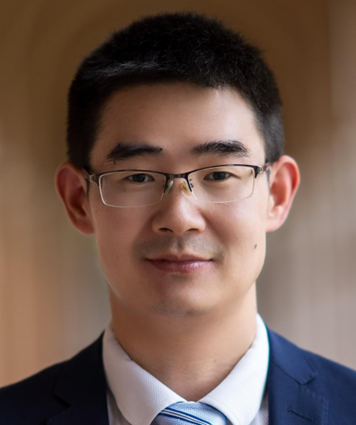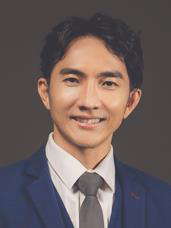INVITED SPEAKERS

Kuichang Zuo<<Peking University, China
Dr. Kuichang Zuo obtained his Ph.D. in 2016 from Tsinghua University in Beijing, and worked as a postdoc in the department of Civil & Environmental Engineering at Rice University in Houston, USA, during 2017-2021. After that, Dr. Kuichang Zuo joined the college of Environmental Sciences & Engineering at Peking University, Beijing, China, as an assistant professor since 2022. The research interest of Zuo’s group is water desalination and ion management, including hypersaline water desalination, target ion selective removal/recovery, and anti-scaling etc. Some specific technical processes include membrane distillation (MD), capacitive deionization (CDI), electrodialysis (ED), nanofiltration (NF), reverse osmosis (RO) etc. Dr. Zuo’s group focuses on novel materials, processes, as well as pilot scale reactor and system designs. He has published over 60 SCI articles, including some published on top journals such as Nature Nanotechnology, Nature Communications, Nature Reviews Materials, Materials Today, Environmental Science & Technology, Water Research etc., with a H index of 27. Dr. Kuichang Zuo is a recipient of American-Made Geothermal Lithium Extraction Prize (DOE, USA), Outstanding achievement award of scientific research (Ministry of Education, China), Capital ECO-PRO Group “Water Star” Scientific Innovation Prize etc. Dr. Kuichang Zuo is also a Scientific Committee Member of the IWA Specialist Group on Membrane Technology, member of youth editorial board of Desalination journal, and member of IWA Young Water Professionals.

Yew Ming Kun<<Universiti Tunku Abdul Rahman, Malaysia, Malaysia
He completed his studies at
the University of Malaya (UM), where he earned his degree in Mechanical
Engineering from the Faculty of Mechanical Engineering, UM
(Manufacturing). He pursued further education at the same university,
attaining both his M.Eng. and Ph.D. in Civil and Environmental
Engineering with a collaboration in Mechanical Engineering (Materials).
Commencing his academic journey at UM in 2009 and 2012, he undertook
roles as a postgraduate researcher, tutor, and demonstrator.
Following the submission of his Ph.D. Thesis, C.Eng. Yew became a
Lecturer in the Faculty of Engineering and The Built Environment at SEGi
University. He subsequently joined Universiti Tunku Abdul Rahman (UTAR)
in 2015. Presently, he operates within the Department of Civil
Engineering at UTAR's Lee Kong Chian Faculty of Engineering and Science.
He guided a significant number of final-year students and postgraduate
students, fostering their growth and engagement in numerous projects,
leading to award-winning products, patents, and the development of
"Green & Sustainable Building Materials."
In his capacity as a Principal Investigator (P.I) and Co-P.I, he
spearheaded over three research projects and secured eight intellectual
property rights, encompassing both international and national domains.
His accomplishments extend to receiving Gold Medals at ITEX 2011, 2019,
2020, and 2022, as well as a Gold Medal at iENA 2012 in Germany. He
earned a distinguished accolade from the Japan Intellectual Property
Association (JIPA-2022) for his exemplary work in Green Technology.
C.Eng. Yew's contributions to academia span over 75 technical papers and
more than 8 books, predominantly focusing on sustainable construction
materials and fire protective materials/coatings with sustainability in
mind. He holds a significant role as the Lead Guest Associate Editor for
Coatings-Special Issue: Recent Research on Surface Engineering of Cement
and Concrete Materials, as well as Frontiers in Built Environment-
Construction Materials. Moreover, he serves as an Editorial Board Member
for (1) Scientific Reports- Springer Nature, (2) Nanoscience And
Nanotechnology (N) and (3) Current Chinese Engineering Science, while
also fulfilling the role of a reviewer for esteemed journals such as
Engineering Structures (Elsevier), Construction and Building Materials
(Elsevier), Journal of Building Engineering (Elsevier), Journal of
Cleaner Production (Elsevier), Journal of Environmental Chemical
Engineering (Elsevier), Fire, Coatings, Journal of Renewable Materials,
British Journal of Applied Science & Technology, among others. He was
also honored with the 2023 Outstanding Editor Award.
In addition to his scholarly commitments, he actively participates in
international conferences, assuming roles within Technical and
Conference Committees such as ICFMM:2021&2022, ICMSET:2023, and
ICCEE-2018&2022. His involvement extends to the American Concrete
Institute, ACI Malaysia, where he contributes as a Committee member. His
professional background includes stints as a Project Engineer and
Structural Engineer at IJM and Sapura Energy Berhad Malaysia. Throughout
these roles, he demonstrated expertise in design, manufacturing,
fabrication, construction, development, and management.
Furthermore, he engages in consultancy projects, collaborating with
government entities and private enterprises within UM-UPUM and UTAR-DCC,
Malaysia. His consultancy portfolio encompasses the design and
development of projects related to Energy Sustainability and Smart
Communities. Notable projects include "Fibre Reinforced Lightweight
Floating Concrete Pavement Integrated with Solar Panel and IoT Devices,"
catering to various applications in the construction, oil & gas and
aquaculture industries, including Marine Products Association, Pangkor
Dolphin Fish Farm, Fajar Aqua, and others.